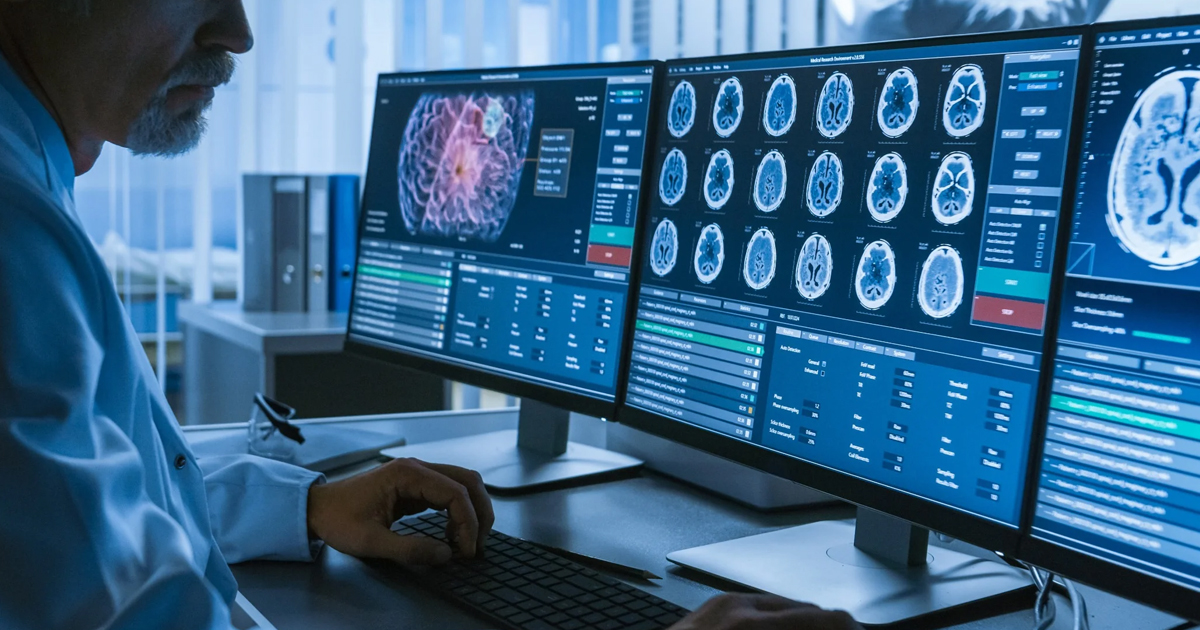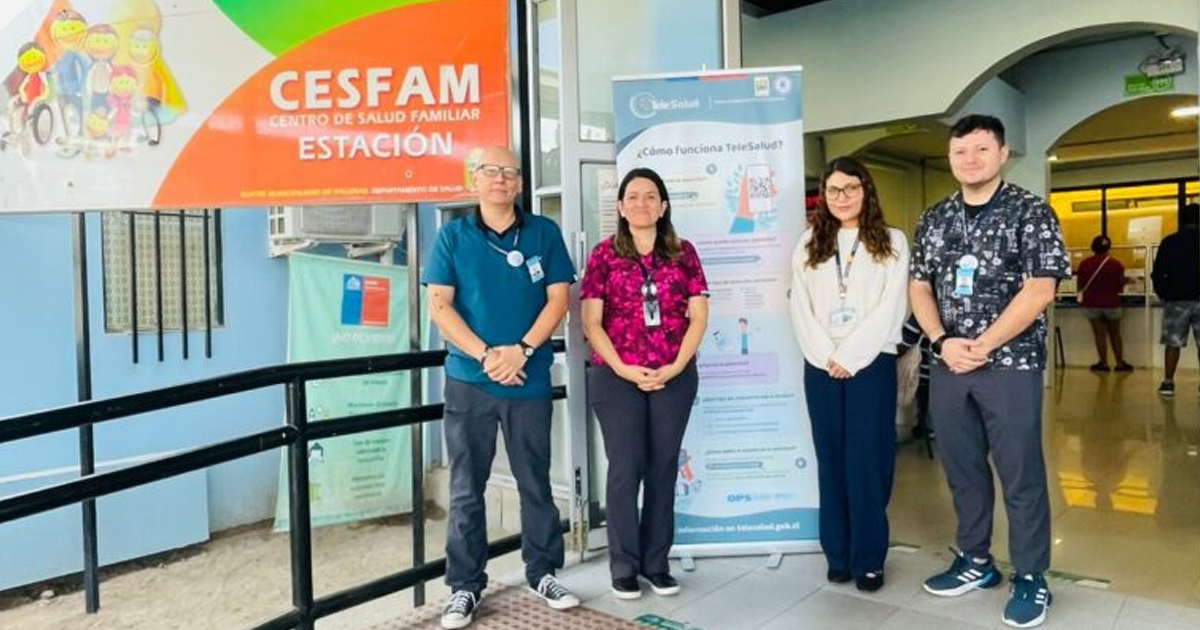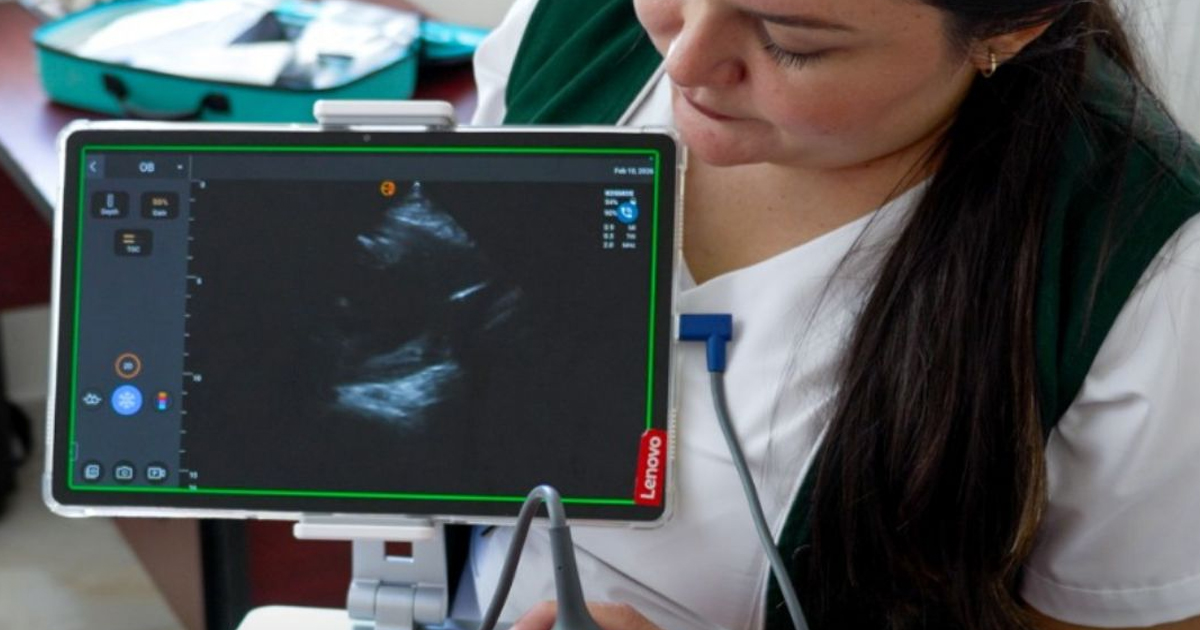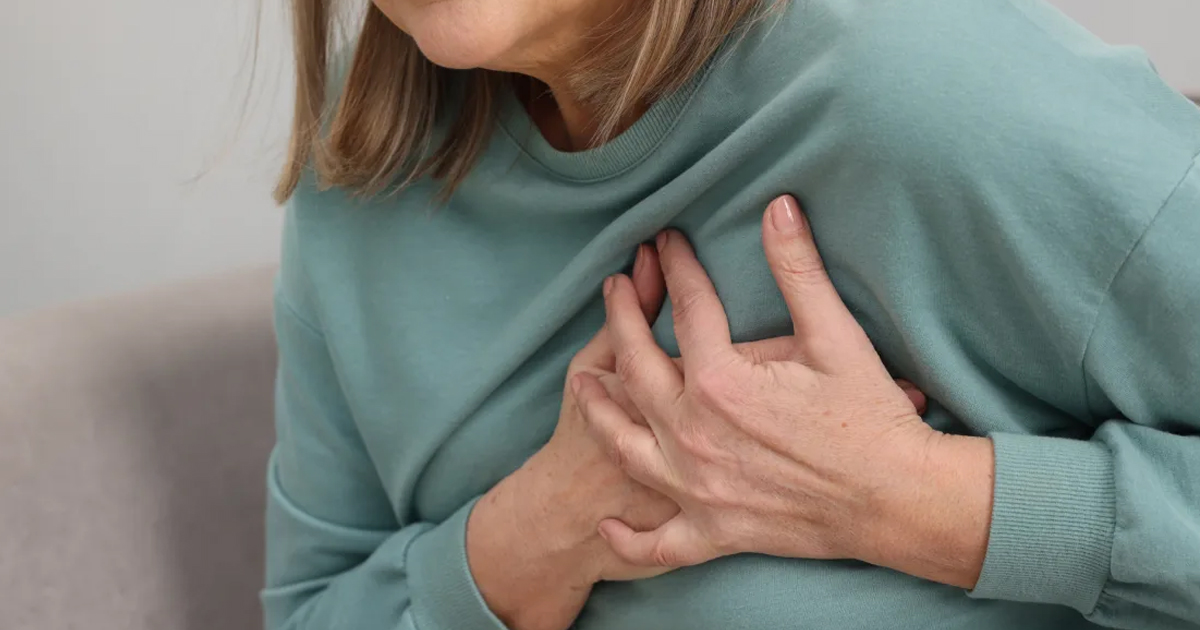Desde el primer caso registrado la segunda semana de marzo, hasta la primera semana de julio, Uruguay contabiliza menos de mil contagios confirmados y más de 800 pacientes recuperados.
El primer reto de la nueva administración de Uruguay (2020-2025), fue contener el avance del COVID-19 en el país, ya que tan solo 12 días después de la entrada del nuevo gobierno, se confirmaron los primeros cuatro casos de coronavirus. El presidente Luis Lacalle Pou asumió el cargo el 1 de marzo de 2020, y días después el 11 de marzo, la Organización Mundial de la Salud (OMS), declararía el bote de COVID-19 en el mundo como pandemia.
Daniel Salinas, actual Ministro de Salud, tras conocer el panorama del COVID-19 sostuvo una reunión el 28 de febrero, días antes de asumir su cargo, con un grupo de expertos. De esta reunión nacería la idea de crear un grupo de expertos científicos para afrontar la epidemia.
El 19 de marzo el Ministerio de Salud ordenó la creación del Comité de Expertos Científicos en Gestión de la Crisis, respondiendo a “que debido a la situación resulta imprescindible contar con la opinión de expertos en diversas áreas científicas”.
Los científicos elegidos para este robusto y diverso comité fueron: el Dr. José Pedro Arcos de la Academia Nacional de Medicina, el Dr. Roberto Salvatela, Asesor en Enfermedades Infecciosas de la PAHO/OMS, el Dr. Julio Medina, Director de la Cátedra de Enfermedades Infecciosas, el Dr. Jorge Facal, Director de la Clínica Médica “1” del Hospital Maciel, el Dr. Julio Vignolo, director de la Cátedra de Medicina Familiar y Comunitaria, la Tte. Cnel. Dra. Lilian Porta del Departamento de Epidemiología de la Dirección Nacional de Sanidad de las Fuerzas Armadas y el. Dr. Henry Albornoz, infectólogo, intensivista y asesor de la Dirección General de la Salud.

Este grupo ayudó a delimitar la estrategia sanitaria, a crear herramientas y los canales correctos para difundir la información disponible en ese momento sobre el SARS-CoV-2.
El Ministro de Salud, reconoce que el gobierno se apoyó fuertemente en el sistema científico local desde el inicio de la emergencia sanitaria, lo que fue fundamental para hacer frente al COVID-19. Pues en gracias a ello se comenzaron a desarrollar test de diagnóstico molecular para reducir la dependencia a los test reactivos que llegaban del extranjero a un alto costo.
Posteriormente, tras un mes del primer caso, el 16 de abril, la presidencia creó el Grupo Asesor Científico Honorario (GACH), integrado por Rafael Radi, Fernando Paganini y Henry Cohen y un grupo de más de 50 expertos. La presidencia aseguró que se creó para brindar asesoramiento científico de calidad y comparando la experiencia internacional, a fin de asistir a la toma de decisiones gubernamentales.
Dentro Del GACH, existen dos áreas para el manejo de la emergencia sanitaria: Área Planificación salud, asistencia y prevención y Área de modelos y ciencia de datos. En cuanto al Área de modelos y ciencia de datos, coordinada por el Dr. Paganini, se desprenden cuatro grupos adicionales, el primero Datos para la vigilancia, cuyos miembros trabajan en conjunto con Epidemiología del Ministerio de Salud, y les dan seguimiento a los casos confirmados a través de sistemas informáticos. Models and projections, este grupo se encarga del modelado matemático de la epidemia, los indicadores de tendencias y proyecciones a corto plazo, además miden el imparto sobre la estructura de salud, como la capacidad hospitalaria. Muestreo y análisis estadístico, en el cual se investigan fenómenos no observados como aquellos casos no reportados, casos asintomáticos, el nivel de contacto entre la población la implementación de nuevos test (PCR o serológicos) y encuestas.
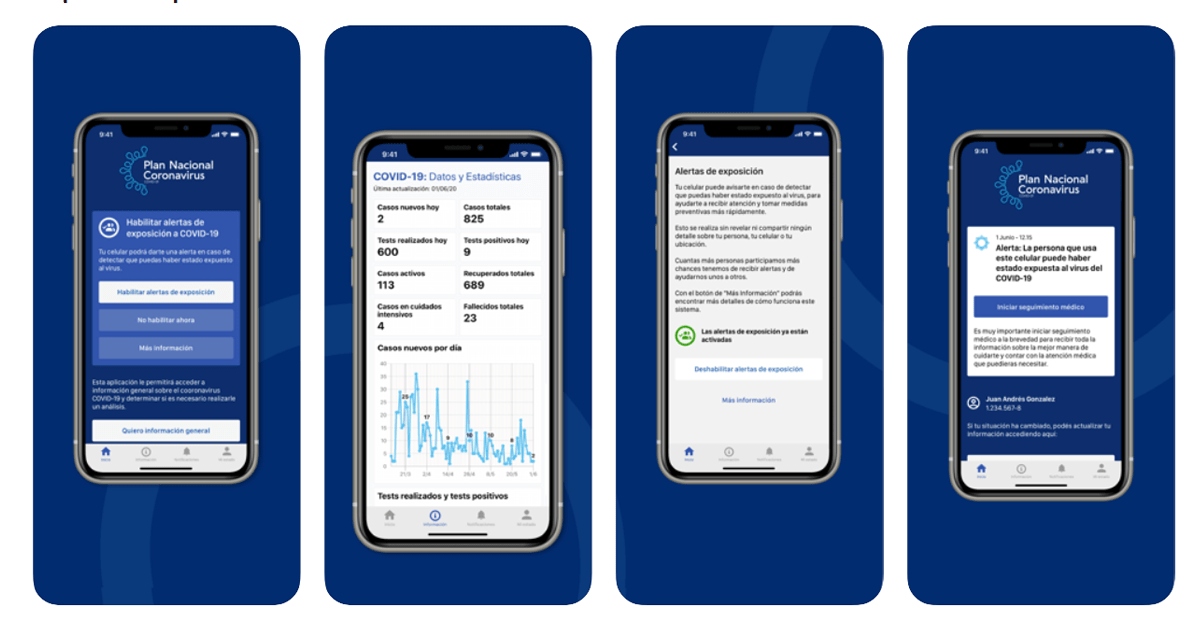
Mobility and Apps es otro de los grupos, en este se registra y monitorea la movilidad de la población a través de aplicaciones en teléfonos inteligentes. Gracias a este grupo se creó la aplicación Coronavirus UY, disponible en GooglePlay, AppStore y AppGallery, esta aplicación utiliza la tecnología de Contact tracing tools de Google y Apple, activando las alertas de exposición la aplicación podrá avisar al usuario si estuvo expuesto a un posible contagio. Uruguay fue uno de los 22 países que aprobó el uso esta tecnología para el desarrollo de aplicaciones contra el coronavirus.
In addition, as part of the National Coronavirus Plan, el gobierno habilitó un número telefónico y varios canales digitales para poner a disposición de la población información oficial como recomendaciones, herramientas para agendar diagnósticos y asesoría médica, consultar estadísticas y datos sobre las actualizaciones diarias sobre el COVID-19, entre otros tipos de información necesaria.
En el sitio web del Ministerio de Salud está disponible un chatbot, que responde dudas básicas sobre el Coronavirus de forma inmediata. Además de este chatbot, también se habilitó un canal de comunicación en Messenger de Facebook, a través de @MPSUruguay.
Además, a través del número 098 99 99 99 en WhatsApp es posible agendar consultas sobre COVID-19.
Gracias a todas estas estrategias, Uruguay tiene una de las tasas de letalidad más bajas en Latinoamérica y registra menos de 50 muertes hasta la primera semana de julio. Sin embargo, una parte importante de la eficaz estrategia de Uruguay su gobierno fue el consenso entre la clase política, pues los diferentes partidos políticos apoyaron las medidas del gobierno ante el brote de COVID-19. Además, el plan económico, también logró consenso, y así se creó el Fondo del Coronavirus que se financió con la reducción del 20% de sueldos funcionarios públicos -incluyendo el presidente- que ganaran más de 1,800 USD al mes.
Otro factor clave fue su sistema de salud universal, casi único en América Latina, pues decir todos los uruguayos tienen acceso a la salud. Además, su sistema de atención primaria y médicos familiares en localidades fueron importantes para una atención médica inmediata para evitar complicaciones y muertes.
GOVERNMENT OF URUGUAY
https://www.gub.uy/ministerio-salud-publica/coronavirus
https://api.whatsapp.com/send?phone=59898999999&text=&source=&data=&app_absent=
MONTEVIDEO
SCIDEV
BBC WORLD
https://www.youtube.com/watch?v=dDHHLysaCHg
THE OBSERVER
EL PAÍS URUGUAY
https://www.elpais.com.uy/informacion/sociedad/asi-le-avisaran-estuvo-contacto-caso-coronavirus.html


